15 Best Travel Tips To Save Money & Travel As You Like
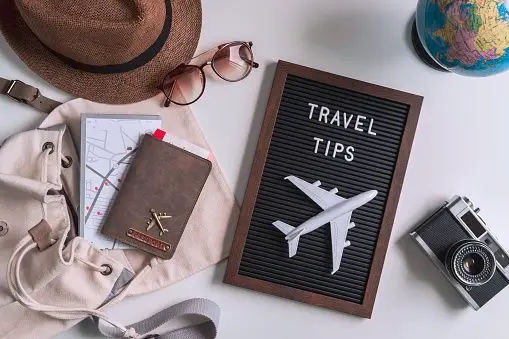
Traveling is the act of moving from one place to another, often for leisure, business, education, or other purposes. It involves going to different locations, experiencing new cultures, meeting new people, and learning about different ways of life.
Traveling can be done within one's own country or to other countries, and it can involve various modes of transportation, such as planes, trains, buses, or cars.
For many people, traveling is not only a way to relax and unwind but also an opportunity to broaden their horizons, gain new perspectives, and create unforgettable memories.
Traveling is one of the best ways to explore new places, meet new people, and create lifelong memories.
However, the cost of travel can often be a significant barrier for many people. Fortunately, with the right planning and approach, it's possible to travel without breaking the bank. Here are 15 best travel tips to save money and travel as you like.
1. Plan ahead

Planning ahead is a crucial step when it comes to traveling. Whether you're going on a weekend getaway or a long-term trip, it's essential to plan ahead to ensure a smooth and stress-free experience. Here are some tips on how to plan ahead for your travels:
- Determine your budget: Before you start planning your trip, it's important to determine how much you can afford to spend. This will help you decide on your destination, mode of transportation, accommodation, and activities.
- Choose your destination: Once you've determined your budget, choose a destination that fits within your financial constraints. Consider factors such as the cost of living, the exchange rate, and the season.
- Research your destination: Before you go, research your destination thoroughly to learn about the local culture, customs, laws, and safety concerns. This will help you prepare for your trip and make the most of your time there.
- Book your transportation and accommodation: Once you've chosen your destination, book your transportation and accommodation in advance to avoid last-minute price hikes and availability issues.
- Plan your itinerary: Plan your itinerary based on your interests and preferences, and make sure to include enough time for rest and relaxation.
- Pack accordingly: Make a packing list and pack accordingly for the weather, activities, and cultural norms of your destination.
- Check for travel advisories: Before you go, check for travel advisories and warnings for your destination. This will help you stay informed about any potential risks or safety concerns.
By planning ahead, you can ensure a smooth and enjoyable travel experience. With careful preparation and research, you can make the most of your trip and create unforgettable memories.
2. Be flexible with your travel dates
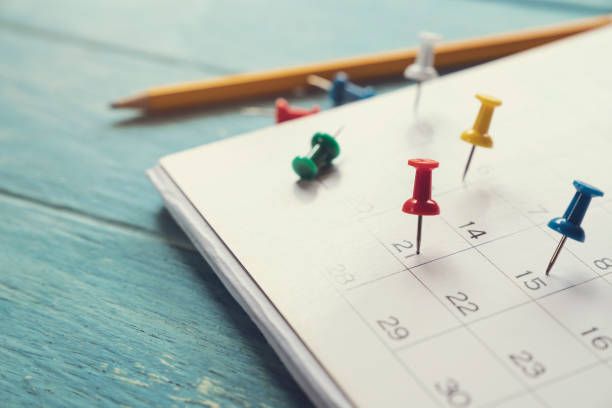
Being flexible with your travel dates can be a great way to save money and get the most out of your travels. Here are some reasons why being flexible with your travel dates can be beneficial:
- Cheaper flights and accommodation: By being flexible with your travel dates, you can take advantage of cheaper flights and accommodation rates. For example, traveling during off-peak seasons or mid-week can often result in lower prices.
- More availability: If you're flexible with your travel dates, you may be able to find more availability for flights and accommodation options. This can be especially helpful during peak travel seasons when availability is limited.
- More opportunities for deals and discounts: By being open to different travel dates, you may be able to take advantage of deals and discounts that are available only for certain dates.
- More time to plan: By having a flexible travel schedule, you can take more time to plan and research your trip, which can lead to a more enjoyable and stress-free experience.
- Avoiding crowds: Traveling during off-peak seasons can also mean avoiding crowds and long lines at popular tourist attractions, which can make for a more relaxed and enjoyable experience.
When planning your travels, consider being flexible with your travel dates. Doing so can help you save money, find more availability, and enjoy a more relaxed and stress-free travel experience.
3. Use travel reward points

Using travel reward points can be an excellent way to save money and make the most of your travels. Here are some tips on how to use travel reward points:
- Sign up for loyalty programs: Sign up for loyalty programs with airlines, hotels, and other travel-related companies. This will allow you to earn reward points for your purchases, which you can then use for future travel.
- Choose a credit card with travel rewards: Consider getting a credit card that offers travel rewards. These cards often offer sign-up bonuses and reward points for your purchases that can be used for flights, hotels, and other travel expenses.
- Know the redemption options: Familiarize yourself with the redemption options for your reward points. Some programs may offer more value when used for specific purchases or with certain travel partners.
- Plan ahead: Plan ahead and book your travel using your reward points as early as possible to ensure availability and maximize the value of your points.
- Use points for upgrades: Consider using your reward points for upgrades such as premium seats on flights or suites at hotels. This can make your travel experience more comfortable and enjoyable.
- Be flexible: Be flexible with your travel plans and consider different travel dates or destinations that offer better redemption rates for your reward points.
Using travel reward points can be an excellent way to save money and enhance your travel experience.
By signing up for loyalty programs, choosing a credit card with travel rewards, and planning ahead, you can make the most of your reward points and enjoy more travel opportunities.
4. Stay in hostels
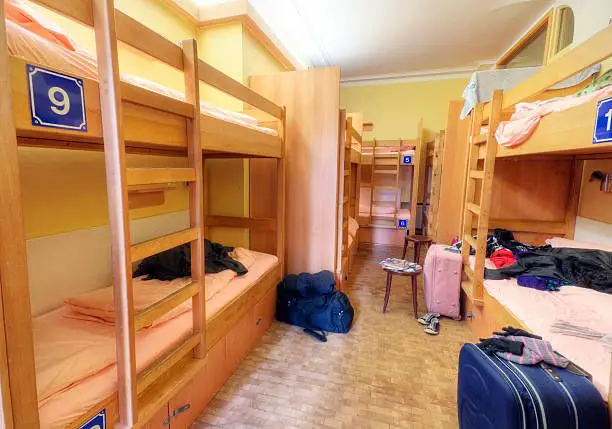
Staying in hostels can be a great way to save money while traveling and meet new people from around the world. Here are some tips on how to stay in hostels:
- Choose the right hostel: When choosing a hostel, research the location, facilities, and reviews from previous guests. Look for hostels that offer amenities such as free Wi-Fi, breakfast, and lockers to store your belongings.
- Consider a private room: While hostels are often known for their dormitory-style accommodations, many also offer private rooms for a higher price. This can be a good option if you prefer more privacy or are traveling with a group.
- Be respectful of others: Remember that you'll be sharing space with other travelers, so it's important to be respectful of their privacy and comfort. Keep noise levels down during quiet hours and keep your belongings organized in shared spaces.
- Make use of common areas: Hostels often have common areas such as kitchens, lounges, and outdoor spaces. Take advantage of these areas to meet other travelers and save money on meals by cooking your own food.
- Join hostel activities: Many hostels offer organized activities such as tours, pub crawls, and game nights. Joining these activities can be a great way to meet other travelers and explore the local area.
- Consider long-term stays: Some hostels offer discounts for longer stays, so if you're planning on staying in one place for a while, consider staying in a hostel to save money.
Staying in hostels can be a fun and budget-friendly way to travel. By choosing the right hostel, being respectful of others, and taking advantage of common areas and activities, you can make the most of your hostel experience and create unforgettable travel memories.
5. Cook your own meals

Cooking your own meals while traveling can be a great way to save money and also allow you to experience local food and culture in a unique way. Here are some tips on how to cook your own meals while traveling:
- Choose accommodation with a kitchen: When booking your accommodation, look for options that offer access to a kitchen. This could be a hostel, Airbnb, or hotel with a kitchenette.
- Shop at local markets: Shop at local markets to buy fresh produce and ingredients. This can be a great way to experience local culture and also save money by avoiding expensive restaurants.
- Cook simple meals: When cooking your own meals, keep it simple. Look for easy recipes that don't require too many ingredients or complicated cooking techniques. This will save you time and money and still allow you to enjoy delicious meals.
- Cook in bulk: Cook in bulk and store leftovers for future meals. This is a great way to save time and money, and also reduce food waste.
- Take advantage of free breakfasts: If your accommodation offers a free breakfast, take advantage of it. This can save you money and give you a good start to your day.
- Pack snacks: Pack snacks such as fruit, nuts, and granola bars to take with you while you're out exploring. This can save you money and prevent you from having to buy expensive snacks on the go.
Cooking your own meals while traveling can be a rewarding experience that allows you to save money and also experience local culture in a unique way.
By choosing accommodation with a kitchen, shopping at local markets, and cooking simple meals, you can create delicious and budget-friendly meals while on the go.
6. Use public transportation
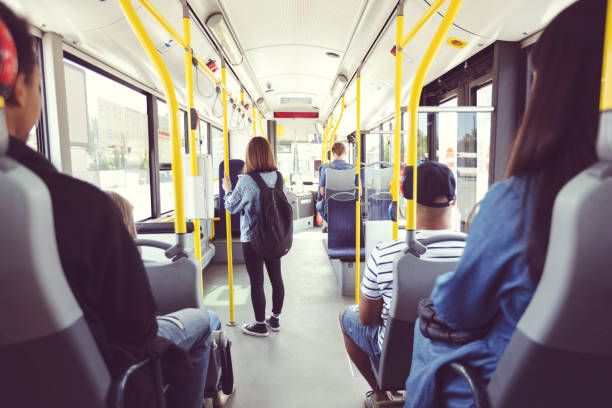
Using public transportation can be a great way to save money while traveling, as it is often cheaper than renting a car or taking taxis. Here are some tips on how to use public transportation while traveling:
- Research the options: Before you arrive at your destination, research the public transportation options available. This could include buses, trains, and subways. Look for schedules and maps online to help you plan your routes.
- Get a transit pass: If you plan on using public transportation frequently during your stay, consider purchasing a transit pass. This will allow you to save money on individual fares and make it easier to navigate the system.
- Use apps for navigation: There are many apps available that can help you navigate public transportation systems. These apps can help you plan routes, check schedules, and even purchase tickets in some cases.
- Be aware of rush hour: Rush hour can be busy and crowded on public transportation systems, so try to avoid traveling during these times if possible.
- Be prepared for delays: Public transportation systems can experience delays due to traffic, weather, or other issues. Be prepared for delays by allowing extra time for your commute and having a backup plan if necessary.
- Consider walking or cycling: Walking or cycling can be a great way to explore a new city and also save money on transportation. Consider renting a bike or using a bike-sharing service if available.
Using public transportation while traveling can be an affordable and convenient way to get around.
By researching the options, getting a transit pass, using apps for navigation, and being prepared for delays, you can make the most of your public transportation experience and save money on your travels.
7. Walk or bike
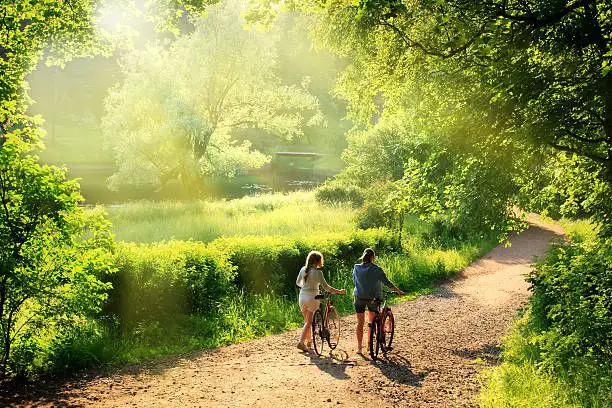
Walking or biking can be a great way to explore a new destination, get some exercise, and save money on transportation. Here are some tips on how to walk or bike while traveling:
- Choose the right footwear: If you plan on walking a lot while traveling, make sure to wear comfortable shoes that are suitable for walking long distances. Avoid new or untested shoes that may cause blisters or sore feet.
- Plan your route: Before heading out, plan your route and make sure to bring a map or download a map app. This will help you avoid getting lost and save time.
- Stay safe: When walking or biking, be aware of your surroundings and stay safe. This includes following traffic rules and wearing a helmet if biking.
- Rent a bike: If you plan on biking, consider renting a bike or using a bike-sharing service. This can be a convenient and affordable way to explore a city.
- Walk or bike with a group: Walking or biking with a group can be a fun way to explore a new destination and also increase safety.
- Bring water and snacks: When walking or biking, bring water and snacks to keep yourself hydrated and energized.
Walking or biking can be a great way to save money on transportation and also allow you to experience a new destination in a unique way.
By choosing the right footwear, planning your route, staying safe, renting a bike, walking or biking with a group, and bringing water and snacks, you can make the most of your walking or biking experience while traveling.
8. Book activities in advance
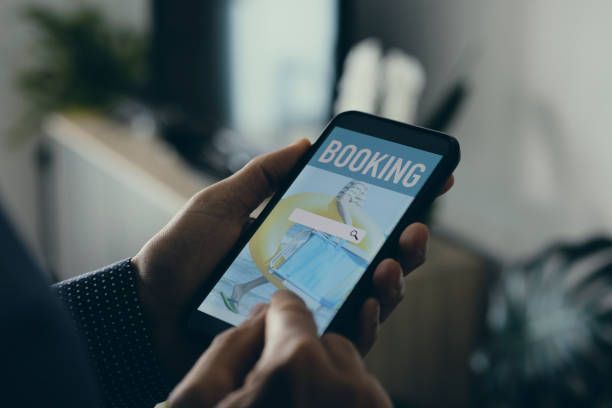
Booking activities in advance is a great way to save money and ensure that you can do the things you want to do while traveling. Here are some tips on how to book activities in advance:
- Research the activities: Before you arrive at your destination, research the activities you want to do. Look for discounts or special offers, and read reviews from other travelers to ensure that the activity is worth the cost.
- Book online: Many activities offer discounts for booking online, so be sure to check the company's website for deals. You can also use travel websites or apps to book activities in advance.
- Check cancellation policies: Before booking an activity, make sure to check the cancellation policy. Some activities may have strict cancellation policies, while others may allow you to cancel or reschedule with little or no penalty.
- Book early: Popular activities can fill up quickly, so it's a good idea to book in advance. This can also help you save money, as some companies may offer discounts for booking early.
- Bundle activities: If you plan on doing multiple activities, consider bundling them together to save money. Many companies offer discounts for booking multiple activities at once.
- Be flexible: If you're flexible with your schedule, look for last-minute deals or discounts. Some companies may offer discounts for booking activities that have not been filled.
Booking activities in advance can help you save money and ensure that you get to do the things you want to do while traveling.
By researching activities, booking online, checking cancellation policies, booking early, bundling activities, and being flexible, you can make the most of your travel experience and save money at the same time.
9. Use free city tours

Using free city tours can be a great way to save money while still being able to explore a new destination. Here are some tips on how to use free city tours:
- Research the options: Before you arrive at your destination, research the free city tour options available. Many cities offer free walking tours, bike tours, or bus tours. Look for reviews from other travelers to ensure that the tour is worth your time.
- Book in advance: Free city tours can be popular, so it's a good idea to book in advance. This will ensure that you have a spot reserved and can avoid being turned away due to limited availability.
- Be on time: Make sure to arrive on time for your tour. Some tours may leave promptly at the scheduled start time, so it's important to be punctual.
- Tip the guide: While the tour itself may be free, it's a good idea to tip your guide to show your appreciation for their time and effort. The amount of the tip is up to you, but a few dollars per person is usually appropriate.
- Ask questions: Don't be afraid to ask questions during the tour. This can help you learn more about the destination and make the most of your travel experience.
- Be respectful: When participating in a free city tour, be respectful of the guide, other participants, and the destination itself. Follow any rules or guidelines provided by the guide, and be mindful of the impact you have on the local environment and community.
Using free city tours can be an affordable and fun way to explore a new destination.
By researching the options, booking in advance, being on time, tipping the guide, asking questions, and being respectful, you can make the most of your free city tour experience and save money on your travels.
10. Use travel apps
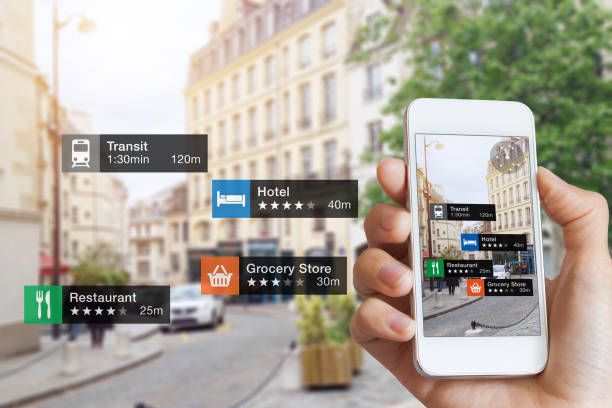
Using travel apps can be a great way to save money and make the most of your travel experience. Here are some tips on how to use travel apps:
- Research and download useful travel apps: Before you leave for your trip, research and download travel apps that will be useful for your trip. There are many apps available for booking flights, accommodations, and activities, as well as for finding local restaurants, transportation options, and more.
- Use price comparison apps: Price comparison apps can help you find the best deals on flights, accommodations, and other travel-related expenses. These apps compare prices from multiple sources and can help you save money.
- Use map and navigation apps: Map and navigation apps can help you find your way around a new destination and avoid getting lost. These apps can also help you find nearby attractions, restaurants, and other points of interest.
- Use language translation apps: Language translation apps can help you communicate with locals in a new destination, even if you don't speak the local language. These apps can translate speech, text, and even images.
- Use weather apps: Weather apps can help you plan your activities and pack appropriately for your trip. They can also help you avoid bad weather and ensure that you have an enjoyable travel experience.
- Use travel reward apps: Many travel companies offer rewards programs that can help you save money on future trips. By using travel reward apps, you can earn points or other rewards for booking flights, accommodations, and activities.
Using travel apps can help you save money and make the most of your travel experience.
By researching and downloading useful travel apps, using price comparison apps, map and navigation apps, language translation apps, weather apps, and travel reward apps, you can have an enjoyable and affordable travel experience.
11. Use credit cards with travel rewards

Using credit cards with travel rewards can be a great way to save money and earn rewards while traveling. Here are some tips on how to use credit cards with travel rewards:
- Research and compare credit card offers: Before applying for a credit card with travel rewards, research and compare different offers to find the best one for your needs. Look for cards that offer rewards points or miles that can be redeemed for travel-related expenses such as flights, hotels, and rental cars.
- Pay off your balance in full each month: To avoid paying interest and fees on your credit card balance, make sure to pay it off in full each month. This will also help you avoid debt and maintain good credit.
- Use your card for travel-related expenses: To maximize your rewards, use your credit card for travel-related expenses such as flights, hotels, and rental cars. Some cards also offer bonus rewards for spending in certain categories, such as dining or entertainment.
- Take advantage of sign-up bonuses: Many credit cards with travel rewards offer sign-up bonuses for new cardholders. These bonuses can be worth hundreds of dollars in travel rewards, so make sure to take advantage of them if possible.
- Keep track of your rewards: Make sure to keep track of your rewards points or miles and when they expire. Some rewards programs have expiration dates or other restrictions, so it's important to use them before they expire.
- Redeem your rewards wisely: When redeeming your rewards, make sure to do so wisely to get the most value. Some rewards programs offer better value for certain types of travel or for booking through their own travel portals, so make sure to do your research before redeeming your rewards.
Using credit cards with travel rewards can help you save money and earn rewards while traveling.
By researching and comparing offers, paying off your balance in full each month, using your card for travel-related expenses, taking advantage of sign-up bonuses, keeping track of your rewards, and redeeming them wisely, you can have an enjoyable and affordable travel experience.
12. Be mindful of tourist traps
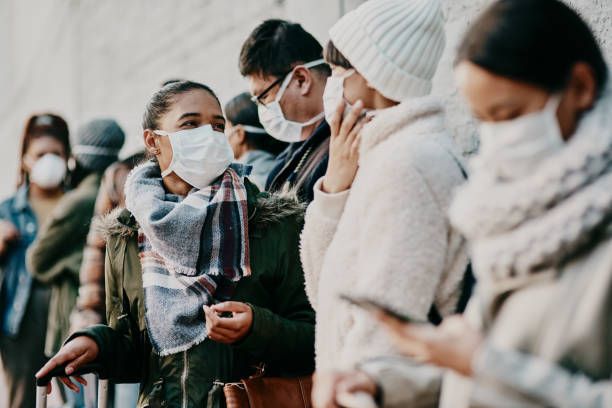
When traveling, it's important to be mindful of tourist traps - places that are designed to attract tourists and often charge high prices for low-quality products or services. Here are some tips on how to avoid tourist traps:
- Do your research: Before visiting a new destination, do some research to learn about popular tourist attractions and activities. This can help you identify which places may be tourist traps and which ones are worth visiting.
- Avoid overly crowded areas: Tourist traps are often located in overly crowded areas, such as city centers or popular tourist districts. Consider exploring less crowded areas of a destination to find hidden gems and avoid high-priced tourist traps.
- Be wary of overly pushy vendors: Some vendors may use overly aggressive sales tactics to try to sell you products or services. Be wary of vendors who are overly pushy or make unrealistic promises.
- Ask locals for recommendations: Locals can be a great source of information when it comes to avoiding tourist traps. Ask locals for recommendations on places to eat, shop, and explore that are off the beaten path.
- Use online reviews: Online review sites, such as Yelp or TripAdvisor, can be a great resource for identifying tourist traps and finding hidden gems. Read reviews from other travelers to get an idea of what to expect from a particular attraction or activity.
- Don't be afraid to say no: If you find yourself in a tourist trap or being pressured to buy something, don't be afraid to say no. You have the right to make your own decisions and should never feel obligated to buy something or participate in an activity that you're not interested in.
By being mindful of tourist traps and following these tips, you can have a more enjoyable and authentic travel experience without falling victim to scams or overpriced tourist traps.
Remember to do your research, avoid overly crowded areas, be wary of pushy vendors, ask locals for recommendations, use online reviews, and don't be afraid to say no.
13. Look for free activities

Traveling can be an expensive endeavor, but it doesn't have to be. One of the best ways to save money while traveling is to look for free activities. Here are some tips on how to find free activities while traveling:
- Research online: Before you travel, do some research online to find free activities in your destination. There are many websites and blogs dedicated to listing free things to do in different cities around the world.
- Check out parks and beaches: Parks and beaches are often free to visit and can offer great opportunities for outdoor activities such as hiking, picnicking, swimming, and sunbathing.
- Visit museums on free days: Many museums offer free admission on certain days or at certain times. Check the museum's website or call ahead to find out when these free days or times are.
- Attend free events: Check local event calendars for free concerts, festivals, and other events happening in your destination. You can often find free outdoor concerts, markets, and other events that are open to the public.
- Take a walking tour: Many cities offer free walking tours that are led by locals or volunteers. These tours can be a great way to learn about the history and culture of a city while getting some exercise.
- Visit public libraries and community centers: Public libraries and community centers often offer free classes, workshops, and events. Check out their schedules to see what's available during your visit.
By looking for free activities, you can save money and still have a great time while traveling.
Remember to do your research, check out parks and beaches, visit museums on free days, attend free events, take a walking tour, and visit public libraries and community centers.
14. Buy souvenirs locally
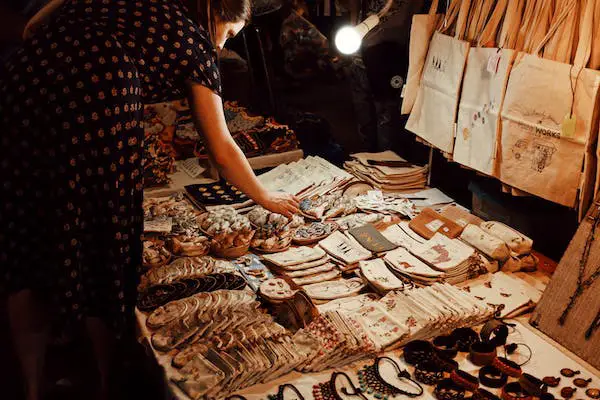
Buying souvenirs is a great way to remember your travel experiences and bring back something special for your friends and family.
However, it's important to be mindful of where you buy your souvenirs from. Here are some tips on why you should buy souvenirs locally:
- Support the local economy: Buying souvenirs from local shops and artisans helps support the local economy and the people who live there. It's a great way to give back to the community and support local businesses.
- Get authentic souvenirs: Buying souvenirs from local shops ensures that you are getting authentic, locally-made products that represent the culture and traditions of the region.
- Avoid mass-produced items: Buying souvenirs from street vendors or tourist shops can often mean purchasing mass-produced items that are not unique or representative of the local culture.
- Meet locals and learn about their culture: Shopping at local markets and stores can be a great way to meet locals and learn more about their culture and traditions. It's a great way to immerse yourself in the local culture and gain a deeper understanding of the place you are visiting.
- Reduce your carbon footprint: Buying souvenirs locally can help reduce your carbon footprint by supporting local artisans who use sustainable materials and practices.
By buying souvenirs locally, you can support the local economy, get authentic souvenirs, avoid mass-produced items, meet locals and learn about their culture, and reduce your carbon footprint.
So next time you travel, consider shopping at local markets and stores to find the perfect souvenirs to bring back home.
15. Be respectful of the local culture
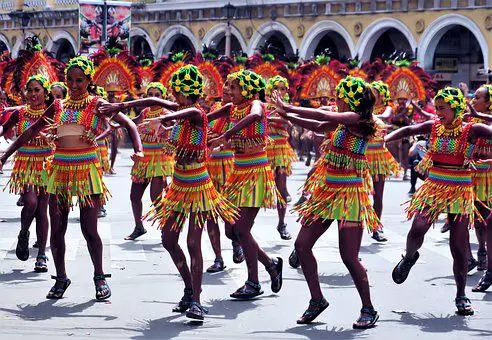
When traveling, it's important to be respectful of the local culture. This means being aware of and following local customs, traditions, and social norms. Here are some tips on how to be respectful of the local culture:
- Learn about the local customs: Before you travel, do some research on the customs and traditions of the place you are visiting. This will help you understand the local culture and avoid any unintended disrespectful behavior.
- Dress appropriately: In some cultures, dressing modestly is a sign of respect. Make sure to dress appropriately for the local culture, especially when visiting religious or sacred sites.
- Be aware of social norms: Different cultures have different social norms, such as how to greet people, what is considered polite conversation, and how to behave in public. Observe the locals and try to follow their lead.
- Be mindful of your behavior: Be mindful of your behavior and how it may be perceived by locals. For example, in some cultures, it's considered impolite to raise your voice or show anger in public.
- Use respectful language: Learn some basic phrases in the local language and use them when interacting with locals. Avoid using slang or offensive language.
- Respect local wildlife and the environment: Respect the local wildlife and environment by not disturbing the natural habitat or littering.
By being respectful of the local culture, you can have a more enjoyable and fulfilling travel experience while also showing respect for the people and culture of the place you are visiting.
Conclusion
Traveling is an enriching experience that allows you to learn about new cultures, explore different places, and create unforgettable memories.
However, it can also be an expensive undertaking. By implementing some of the travel tips mentioned above, you can save money while still enjoying the full travel experience.
Planning ahead, being flexible with travel dates, using travel reward points, staying in hostels, cooking your own meals, using public transportation, walking or biking, booking activities in advance, using free city tours, using travel apps, using credit cards with travel rewards, being mindful of tourist traps, looking for free activities, buying souvenirs locally, and being respectful of the local culture are all ways to save money and enhance your travel experience.
Whether you're traveling on a tight budget or simply looking to get the most out of your travel experience, these tips can help you achieve your goals and make the most of your travels.
